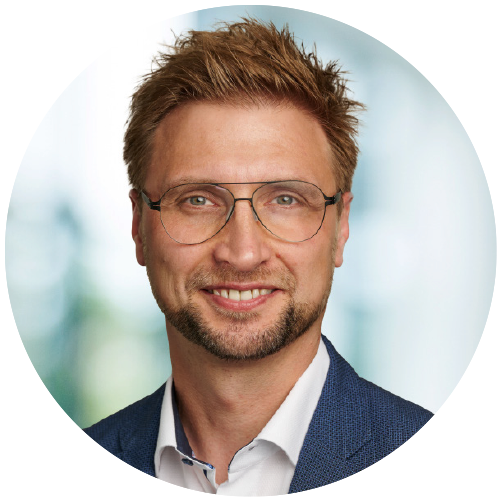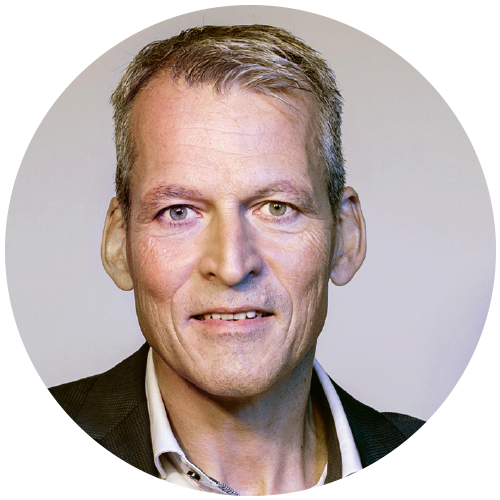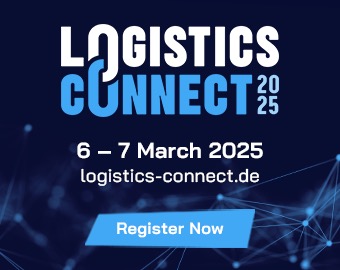In an interview with LOGISTICS PILOT, dbh director Marco Molitor discusses the differences in digitalisation in large and small companies, the acceleration of digital change due to the Covid-19 pandemic, and the requirement to make the general public more aware of digitalisation.
Marco Molitor: I find it difficult to make sweeping statements in this day and age, when our everyday lives are changing completely, especially where the German economy is concerned, as it’s precisely here that considerable differences are apparent. There are the larger companies that are already investing a great deal in new technologies and actively shaping digital change. They have both the financial and the human means to do so, though. The small or medium-sized company with 20 employees already working at full capacity will find this much more difficult. Since you ask where things are going particularly well … the port industry is already well positioned in terms of digitalisation, but in logistics there’s still a lot of potential.
Logistics Pilot: Why is there such a lack of development at the moment? Do companies in this country lack the courage required to implement digital innovations, or has the necessity for this not yet reached the general consciousness?
Marco Molitor: Yes, most companies have realised that they need to invest in new technologies. But, as I said, not everyone can afford it. Plus, you’re right: many certainly lack the courage, or their willingness to do so varies greatly. Many companies have an attitude like “Progress? Yes, but with as little change as possible please!” Often, the desire to change only comes when problems arise, for example a customs audit or a hacker attack. Our general mindset needs to change in this respect.
Logistics Pilot: Has Covid slowed companies down in their digital transformation or pushed them to embrace it? And has the war in Ukraine helped to make those in charge more sensitive to IT and data security?
Marco Molitor: The Covid-19 pandemic definitely contributed to the acceleration of the digital transformation. Video conferencing, mobile working and webinars, to name just a few examples, existed before, of course, but these areas were expanded rapidly during the lockdowns. Digital transformation costs money, though. Smaller companies don’t have this money, and this hinders their digital transformation. Plus, the decision-makers are sometimes not necessarily those who are familiar with digital transformation and don’t understand what steps are necessary. Regarding the war in Ukraine – data security was already a significant factor before, but the number of requests for security solutions has skyrocketed since it started. Here’s an example – before the war, our data centre was attacked by around 10,000 hackers a day; now it’s 40,000. We can deal with that. However, every company should make an active effort to ensure its data security. Our task must be, therefore, to sensitise those responsible in each case to the fact that IT security is a relevant topic, now more than ever, and that sufficient resources must be made available for it. Alternatively, it’s possible to leave it to the professionals.
Logistics Pilot: What does it take for digital technologies to be used even more quickly and comprehensively in Germany?
Marco Molitor: We definitely need a significant improvement in the digital infrastructure. 5G is a prime example. Expansion is already underway, but not quickly or efficiently enough in my opinion. Network failures are still a big issue, other countries are already much further in this respect. As is true for so many industries, the shortage of skilled workers is also a huge problem. We need to raise awareness of IT among the general public and attract qualified young people early on – for example, by introducing computer science as a subject in schools much earlier.
Logistics Pilot: Which digitalisation project has impressed you the most in recent months?
Marco Molitor: That’s an easy one – our “PRINOS” (Port Railway Information and Operation System) digitalisation project. For just under three years, dbh Logistics IT AG has been developing this new IT system for Bremische Hafeneisenbahn, which considerably speeds up the processes involved in planning capacities, scheduling and payroll accounting. It’s a real change project that ensures improved efficiency and transparency. We’ve already successfully introduced “PRINOS” in Bremen-Grolland, and Bremerhaven is to follow this coming summer. (bre)

“We need significant improvement in digital infrastructure.”
dbh director Marco Molitor
ChatGPT has the potential to outperform the likes of Google
Since the US company OpenAI published the first prototype of the chatbot “ChatGPT”, which stands for Generative Pre-trained Transformer, in November 2022, this technology has been on everybody’s lips. ChatGPT uses artificial intelligence (AI) and machine learning to respond to questions. The chatbot’s knowledge is based on a huge dataset of texts and conversations taken from various sources on the internet. In the course of its development, ChatGPT has continuously learned improved techniques and algorithms to provide increasingly accurate answers.
“In its current stage of development, ChatGPT has surpassed all previous AI models and applications and will rearrange the market and what has gone before,” said Daniel Becker, Head of IT at bremenports. “Such technology has the potential to outperform even the likes of Google. In my view, the latest version ‘ChatGPT-4’ has the performance to provide answers to complicated questions on a human level, and at a very high speed.” However, many AI researchers point out that the chatbot is still at the beginning of its development and that its answers can still be flawed, so they should always be questioned and double-checked.

Hendric Maasch, Head of Commercial Affairs and IT at Niedersachsen Ports and JadeWeserPort, also sees a major challenge in checking the source of what ChatGPT produces and assessing the accuracy of the results. “In the application of our human language, there are certain assumptions of understanding that the AI remains unfamiliar with,” he emphasised. “Pronouns should be avoided in queries, for example, because ChatGPT often relates them incorrectly to nouns in previous sentences.” Nevertheless, Maasch is also convinced that this technology will be an essential element for accessing knowledge. In the future, however, school teachers, in particular, will have to become skilled in recognising what is acquired knowledge in submitted work and what has been provided by technology. (bre)

“In its current stage of development, ChatGPT has surpassed all previous AI models and applications and will rearrange the market and what has gone before,”
Daniel Becker, Head of IT at bremenports

“In the application of our human language, there are certain assumptions of understanding that the AI remains unfamiliar with,”
Hendric Maasch, Head of Commercial Affairs and IT at Niedersachsen Ports/JadeWeserPort






